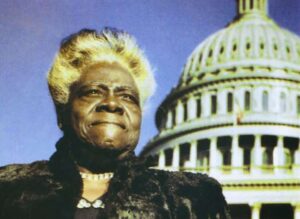Major Takeaways:
- The ongoing paternity dispute between Jay Z and Rymir Satterthwaite highlights the complexities of family law, especially when celebrity status is involved.
- Rymir’s search for his biological father is deeply tied to his quest for personal identity and closure, not just fame or financial gain.
- The case underscores how legacy, legal maneuvering, and public scrutiny can shape and complicate the search for truth and resolution in high-profile family matters.

The world of celebrity is often a stage for drama, speculation, and intrigue. Yet, few stories have captured the intersection of fame, law, and personal identity quite like the ongoing saga involving Shawn Carter, better known as Jay Z, and a man named Rymir Satterthwaite. For over a decade, the question of whether Jay Z is the biological father of Rymir has played out in courtrooms, tabloids, and the court of public opinion. This is not just a story about a paternity dispute. It is a story about legacy, the power of the law, and the profound impact of lost identity.
The Origins of the Dispute
Rymir Satterthwaite’s story begins in the early nineteen nineties in New Jersey. His mother, Wanda, has long maintained that she had a brief relationship with Jay Z before he became a global superstar. According to her, this relationship resulted in the birth of her son, Rymir, in nineteen ninety four. At the time, Jay Z was still an up and coming rapper, not yet the household name he would become. Wanda’s claim, however, would not become a matter of public record until many years later.
As Rymir grew up, he began to question his own identity. The absence of a father figure and the stories told by his mother led him to seek answers. The quest for the truth would eventually lead him to the legal system, where he would attempt to establish a biological connection to Jay Z. This journey would prove to be long, complicated, and fraught with obstacles.
The Legal Labyrinth
The legal battle over Rymir’s paternity is a case study in the complexities of family law, especially when it involves high profile individuals. The first major hurdle was simply getting the case heard. Jay Z, through his legal team, has consistently denied the allegations and has fought efforts to compel him to take a paternity test. The reasons for this resistance are multifaceted. On one hand, there is the desire to protect personal privacy and reputation. On the other, there is the legal strategy of avoiding a precedent that could open the door to similar claims.
Rymir’s legal team has argued that the refusal to take a paternity test is itself suspicious. They have pointed to inconsistencies in the legal process, including alleged procedural errors and the use of technicalities to avoid a definitive resolution. For example, at one point, the case was dismissed on jurisdictional grounds, with the court ruling that it did not have the authority to compel Jay Z to take a DNA test. This decision was later appealed, but the legal wrangling has continued for years without a clear resolution.
The legal system is designed to provide clarity and closure, but in this case, it has often seemed to do the opposite. The use of legal maneuvers, delays, and appeals has created a situation where the truth remains elusive. For Rymir, this has meant years of uncertainty and frustration. For Jay Z, it has meant ongoing scrutiny and the threat of a potential scandal.
The Human Cost
Behind the legal arguments and media headlines is a deeply personal story. For Rymir, the quest to establish his paternity is not just about money or fame. It is about understanding who he is and where he comes from. The absence of a father figure has left a void in his life, one that he has tried to fill through legal means. The emotional toll of this journey cannot be overstated. The constant public attention, the repeated setbacks in court, and the sense of being caught in a battle much larger than himself have all taken their toll.
For Jay Z, the situation is also fraught with personal and professional risks. As one of the most successful and influential artists of his generation, his reputation is a valuable asset. Any suggestion of scandal, especially one involving questions of paternity and responsibility, has the potential to damage his carefully cultivated image. The decision to fight the case rather than address it directly is a calculated one, but it is not without its own costs.
The Role of Legacy
At the heart of this story is the concept of legacy. For Jay Z, legacy is not just about music or business. It is about the story he leaves behind, the impact he has on the world, and the family he builds. The question of whether he is Rymir’s father is not just a legal or biological one. It is a question about the nature of legacy itself. What does it mean to be a father? Is it simply a matter of genetics, or is it about the relationships we build and the responsibilities we accept?
For Rymir, the search for his father is also a search for his own legacy. The desire to know where he comes from, to understand his own story, is a fundamental human need. The absence of answers has left him in a state of limbo, unable to fully embrace his own identity. The legal battle is, in many ways, a battle for his own sense of self.
The Broader Implications
The case of Jay Z and Rymir Satterthwaite raises important questions about the intersection of law, celebrity, and personal identity. In a world where fame and fortune can complicate even the most basic human relationships, the legal system is often ill equipped to provide clear answers. The use of legal technicalities to avoid difficult questions is not unique to this case, but it is particularly stark given the high profile nature of the individuals involved.
There is also the question of public interest. The media has played a significant role in shaping the narrative around this case. The constant coverage, speculation, and analysis have turned a deeply personal matter into a public spectacle. This has both positive and negative effects. On one hand, it brings attention to important issues of paternity, responsibility, and identity. On the other, it can distort the truth and make it harder for those involved to find closure.
The Search for Resolution
As of now, the case remains unresolved. The legal battles continue, with both sides digging in for a long fight. For Rymir, the hope is that one day he will have a definitive answer to the question that has defined his life. For Jay Z, the hope is likely that the matter will eventually fade from public view. The reality is that, as long as the question remains unanswered, the story will continue to capture the public’s imagination.
The search for resolution is not just about a DNA test or a court ruling. It is about the need for closure, for understanding, and for acceptance. For Rymir, the journey has been long and difficult, but it is also a testament to the power of perseverance. For Jay Z, the case is a reminder that even the most carefully managed lives can be upended by the past.
The Lessons Learned
There are important lessons to be learned from this case. The first is the importance of transparency and honesty. The refusal to address difficult questions head on can create more problems than it solves. The use of legal technicalities to avoid responsibility may be effective in the short term, but it rarely provides true closure.
The second lesson is the power of identity. The search for one’s roots is a fundamental human drive. The absence of answers can create a sense of loss and confusion that is difficult to overcome. The legal system can provide some answers, but it is ultimately up to individuals to define their own sense of self.
The third lesson is the impact of fame. Celebrity can magnify even the most private disputes, turning them into public spectacles. This can make it harder for those involved to find resolution and can distort the truth in the process. The media has a responsibility to report on these stories with sensitivity and respect for the individuals involved.
Moving Forward
The story of Jay Z and Rymir Satterthwaite is far from over. The legal battles will likely continue for some time, and the public interest in the case shows no signs of waning. For those involved, the hope is that one day there will be a resolution that provides clarity and closure.
For Rymir, the journey has been about more than just establishing paternity. It has been about finding his own identity and understanding his place in the world. The legal system has provided some tools for this search, but it has also created new challenges. The hope is that, whatever the outcome, he will be able to find peace and acceptance.
For Jay Z, the case is a reminder of the complexities of fame and the responsibilities that come with it. The decision to fight the case rather than address it directly is a personal one, but it is not without consequences. The hope is that, in time, he will be able to move past the controversy and focus on his own legacy.
Conclusion
The long battle over whether Jay Z is the father of Rymir Satterthwaite is a story that touches on some of the most fundamental questions of identity, responsibility, and legacy. It is a story about the power of the law, the impact of fame, and the search for truth. As the case continues to unfold, it serves as a reminder that the answers to life’s most important questions are rarely simple or straightforward. The search for identity is a journey that can take a lifetime, and the answers we find along the way can shape not only our own lives but the lives of those around us.












